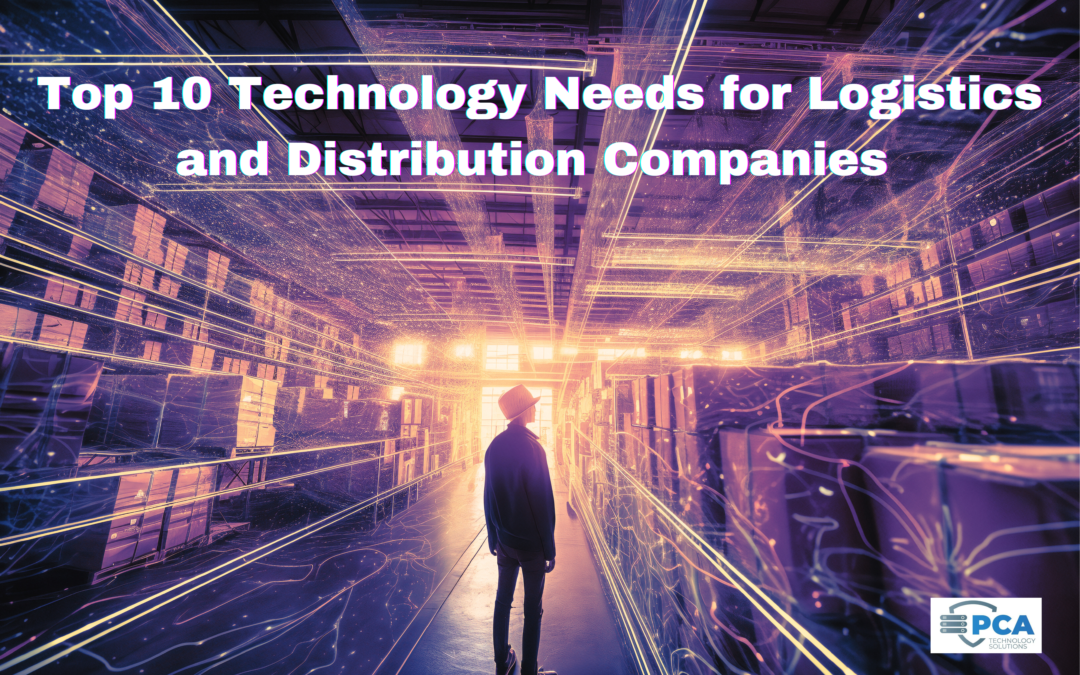The logistics and distribution industry is constantly evolving, and businesses need to stay up-to-date on the latest technology in order to remain competitive.
The top technology needs for logistics and distribution companies revolve around enhancing efficiency, visibility, and agility in supply chain operations. These technologies can help streamline processes, improve customer experience, and stay competitive in a rapidly evolving industry.
Here are the top 10 technology needs for logistics and distribution companies:
- Transportation management systems (TMS). TMS software helps logistics companies manage their transportation operations, from planning and booking shipments to tracking and tracing deliveries.
- Cloud-based logistics software. Cloud-based logistics software can help businesses to improve efficiency and visibility across their supply chains. This software can track shipments, manage inventory, and optimize routes.
- Warehouse Management Systems (WMS). Warehouse automation can help businesses to improve efficiency and productivity in their warehouses. This automation can include robots, conveyor belts, and other systems that can help to move goods around the warehouse more quickly and efficiently.
- Internet of Things (IoT) sensors. IoT sensors can be used to track the movement of goods throughout the supply chain. This data can be used to improve visibility and make better decisions about transportation and inventory management.
- Artificial intelligence (AI). AI can be used to automate tasks, make predictions, and improve decision-making in logistics. For example, AI can be used to predict demand, optimize routes, and detect fraud.
- Virtual reality (VR) and augmented reality (AR). VR and AR can be used to train employees, simulate scenarios, and improve customer service. For example, VR can be used to train warehouse workers on how to operate new equipment, and AR can be used to help customers track their shipments.
- Blockchain. Blockchain is a distributed ledger technology that can be used to track the movement of goods throughout the supply chain. This data can be used to improve transparency and traceability.
- Last-Mile Delivery Solutions. The last-mile delivery is a crucial aspect of logistics, and companies are looking for innovations like drones, autonomous delivery vehicles, and crowd-sourced delivery platforms to optimize this final step.
- Cybersecurity. Cybersecurity is a critical issue for logistics companies. Businesses need to invest in security solutions to protect their data and prevent cyberattacks.
- Sustainable technologies. Logistics companies are increasingly looking for ways to reduce their environmental impact. Sustainable technologies, such as electric vehicles and solar-powered warehouses, are helping companies to become more environmentally friendly.
These are just some of the top technology needs for logistics and distribution companies. By investing in these technologies, businesses can improve efficiency, visibility, and sustainability. They can also make better decisions about the supply chain and improve customer service.
Some additional tips for improving cybersecurity in the logistics industry:
-
- Use multi-factor authentication (MFA) to protect access to sensitive systems and data.
- Keep software up to date with the latest security patches.
- Implement a robust incident response plan to quickly and effectively respond to cyberattacks.
- Monitor your network for suspicious activity.
- Partner with a cybersecurity firm to get expert advice and support.
By following these tips, logistics companies can help to keep their businesses safe from cyberattacks.
Need help?
PCA Technology Solutions can be your Technology Coach and offer solutions to help protect your company. Contact us to ask how we can help.

